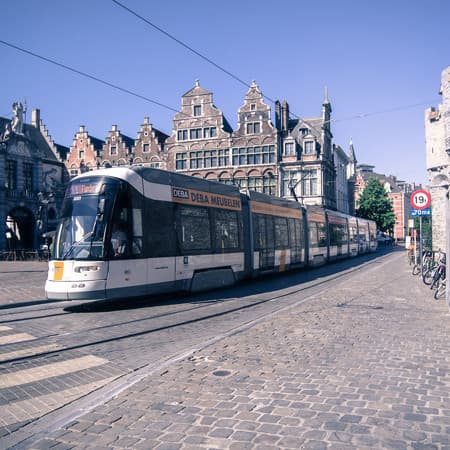2024 public enquiry
On 5 February 2024, the government launched a public enquiry into the latest version of the National Climate Energy Plan. For four weeks, citizens and stakeholders were able to express their opinions on federal policy and certain aspects of the national plan shared with the regions. This process, required by European regulations, aims to actively include the public in the development of federal energy and climate policy.
Most of the questions concerned the federal part of the plan, but they also included two questions on aspects shared with the regions. Surveys on the regional aspects of the plan have also been or are being carried out by the regions.
The contributions received will be taken into account when updating the plan, which should be submitted to the European Commission by 30 June 2024.
Among other things, the public survey showed that :
a majority support an ambitious government approach to the climate crisis, with a particular focus on protecting vulnerable populations,
90% are in favour of a new reform of the company car system, with the majority wanting a mobility budget for each employee,
more than 80% are in favour of a reduction in motorway speed limits,
2/3 are in favour of a tax shift from electricity to fossil fuels,
95% believe that cooperation between the regions and the federal government should be improved; 2/3 are in favour of partial or total re-federalisation of climate policy,
85% are in favour of increasing Belgian climate funding in developing countries.
2019 public enquiry
In accordance with the European Regulation, on 4 June 2019, our country launched a national public inquiry allowing citizens and stakeholders to participate in the preparation of the final National Energy and Climate Plan.
That way, everyone had several opportunities to participate.
via e-mail: by sending their reactions to the general plan or the various entity-specific plans (i.e. federal and regional plans) by e-mail.
via an online survey held from 4 June till 15 July 2019.
Online survey response rate 60,910, of which 86% were fully completed
The respondents:
were mostly men (65%)
were aged between 25 and 64 (81%)
were employed (75%)
had a family (68%)
were highly-skilled (78%)
owned a house (74%)
Some striking figures from the online survey

Some striking figures from the online survey
Transport
32% go to work (almost) daily on foot or by bike. Provided the infrastructure is well developed, 44% of the other respondents would do the same.
66% of working respondents would (at least regularly) use appropriate mobility hubs (a location where different modes of travel converge) to travel to and from work.
Nearly 90% believe that public transport and soft mobility (cycling, walking, etc.) should be more attractive from a tax point of view than private cars for commuters. Of the almost 22,000 respondents who mentioned other options, 26% would have this also apply to teleworking and 20% to carpooling.
In addition, more than 20,000 citizens and stakeholders gave general, additional comments and we also received about 400 e-mails with comments and opinions. These show that::
59% plead for a more forceful policy, with a clear and realistic long-term vision and planning;
47% think that there should be more, and more effective, communication and awareness-raising, not only highlighting energy savings but also consumer behaviour.
The results (FR / NL) in this report are based upon an open survey for Belgian citizens. All citizens older than 16 could take part. No effort was made to achieve representativeness on the basis of the Belgian population.
